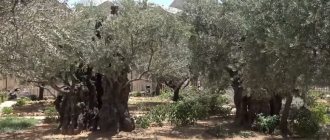Each of us has given alms at least once in our lives on the street, in a temple or on public transport. Some people do it automatically, others think about it and serve it, for example, only to children or the elderly. Some people throw change into their hands, others hand them large bills.
On the one hand, alms are a “plus” in karma. On the other hand, there is a belief that improperly given alms can harm the giver. There is an opinion that by giving to a beggar, we “buy” poverty and illness from him.
Serve with sincere compassion.
One day, leaving his cell, St.
Ambrose turned to his novice. “Over there,” he said, “a widow came with little orphans. There are five orphans, but there is nothing to eat. She cries bitterly and asks for help. And the smallest one doesn’t say anything, but just looks into my eyes, raising his little hands. How can you not give it to him!” The elder immediately put his hand in his pocket for the money. Your hands are shaking with excitement, your face is twitching, tears are flowing from your eyes against your will...
St. Macarius
: “The quality of almsgiving is a heart that burns with love for every creature and desires its good. Almsgiving does not consist in alms alone, but in compassion.”
The virtues of almsgiving
- Giving sadaqa brings reward to the believer. In the Holy Qur'an, God tells us:
“Those who give from their wealth night and day, openly and secretly, will find their reward with the Lord” (2:274)
- Those who give alms will be under the shadow of their Creator. Among the sayings of the Prophet (s.g.w.) is the following: “The Almighty will hide seven in His shadow on the day when there will be one single shadow - His shadow: ... a man who gave alms secretly so that his right hand does not even know what his left hand is spent..." (hadith from al-Bukhari and Muslim).
- Sadaqa is a means of protection against Hellfire. Muhammad (s.w.w.) addressed his ummah with the words: “Protect yourself from the fire of Hell by donating at least half a date” (al-Bukhari).
- Almsgiving erases sins. A famous hadith says: “Alms erases sins just as water extinguishes fire” (at-Tirmidhi).
- Allah returns to a person his good deed in an increased volume. The Revelation of Allah says:
“Indeed, for men and women who gave alms and lent a beautiful loan to the Almighty, it will be increased” (57:18)
- The angels make dua for the alms giver. As proof, we can cite the hadith: “Every morning, when the servants of the Lord wake up, two angels descend, and one of them says: “Oh, Allah! Give recompense to the giver of alms." And the other says: “Oh, Allah! Give loss to the one who abstains from alms” (al-Bukhari and Muslim).
- Leads to piety. Here it is enough to recall the Koranic verse:
“You will not achieve piety until you spend...” (3:92)
- Giving sadaqa is an imitation of the Prophet (s.a.w.). It is reported from the words of Ibn Abbas: “The Messenger of our Creator (s.g.w.) was the most generous of people” (hadith cited by al-Bukhari and Muslim).
- Almsgiving is one of the favorite deeds of the Almighty. The Mercy of the Worlds Muhammad (s.w.w.) said: “Allah’s most beloved deeds are: the joy that you bring to a Muslim, or when you relieve him of sadness, or when you relieve him from hunger, or when you pay a debt for him” (Tabarani).
It's good to donate regularly
Venerable Isaac of Optina
In the world , St. Isaac
was a rich merchant. In his family, a certain day of the week was established on which alms were distributed to the poor.
Grandmother of St. Macaria visited prisoners on Saturdays and gave them pies that she baked herself. One day, this virtue later saved his and his grandfather’s lives: in winter, their cart was attacked by a gang of robbers, and one of the robbers persuaded the leader to spare the travelers, recognizing the woman from whose hands he so often accepted alms in prison.
Venerable Macarius of Optina
There's no shame in donating a little if you don't have any more
St. Barsanuphius
: “A year before I entered the monastery, on the second day of the Nativity of Christ, I was returning from early mass. It was still dark and the city was just beginning to wake up. Suddenly an old man came up to me, asking for alms. I realized that I didn’t take my wallet, and there were only twenty kopecks in my pocket. I gave them to the old man with the words: “Sorry, I don’t have them with me anymore.” He thanked me and handed me the prosphora. I took it, put it in my pocket and just wanted to say something to the beggar, but he was no longer there. I looked everywhere in vain; he disappeared without a trace. The next year on this day I was already in the monastery.”
You can't turn a poor person into a dependent
Venerable Nikon Optina
St. Isaac, being the rector of the Optina Hermitage, not only gave money to the fire victims, but also found work for them at the monastery. His predecessor, St. Petersburg, did the same with those who found themselves in difficult circumstances . Moses
.
St. Nikon
: “Living on alms is dangerous. You can get used to begging. It’s one thing to ask for others, and another thing to ask for yourself. You can ask for alms in extreme need, but in such a way that it does not serve as a reason for grief to anyone. We must pray for the benefactor who provided help.”
St. Nectary
(story by N. Pavlovich): “He said that alms must be given with reason, otherwise you can harm a person. His cell attendant told me that he always wanted to know in detail a person’s needs, and in vain he did not like to give, and if he gave, then generously, for whole boots or even for a cow or horse.”
The hand will not become scarce
As you give, think to yourself: “The hand of the giver will never fail.” Serve with caution to young and middle-aged adults. Trust your intuition. If the person asking is unpleasant to you, you cannot give money - this way, you can give your energy and well-being.
In our time, the meaning of alms is distorted. For those who ask, it has become a source of regular income. If you understand that this is so, abandon this idea. But if you feel an inner need to help, give without regret.
Should you sacrifice what you yourself need?
Venerable Joseph of Optina
St. Macarius: “For the sake of alms one should not go into debt... Moreover, it is necessary to keep in mind the circumstances of one’s own family, so as not to bring it to an extreme situation with unfounded and thoughtless generosity...”
St. Joseph
: “You should give… alms to the needy according to your strength and ability.”
St. Joseph: “Giving for a meal, donating for a hospital, and paying off a debt - that’s all good. But you shouldn’t leave yourself without a penny for necessary needs, otherwise you won’t regret it later.”
St. Ambrose: “You ask whether you did well by borrowing five rubles for the wanderer and giving her P.’s new boots, which she herself needed. I answer: not good, very bad, and very unfounded. Don't do this for any reason. Nowhere is it written for alms to borrow money and do such charity, which inevitably follows embarrassment for you or for others.”
St. Ambrose: “...The Lord commands you to give graciously as much as you can, and he accepts this gift; and if you want to have perfection, then give everything, and go around with your hand, asking for alms, and don’t be upset that you have nothing and people are ungrateful.”
How to give alms: advice from the Optina elders
Help openly or secretly, help once or help regularly? What did the confessors, whose advice all of Russia listened to, say about this? Council of the Optina Elders - October 24
Venerable Ambrose of Optina
Serve with sincere compassion.
One day, leaving his cell, St. Ambrose turned to his novice. “Over there,” he said, “a widow came with little orphans. There are five orphans, but there is nothing to eat. She cries bitterly and asks for help. And the smallest one doesn’t say anything, but just looks into my eyes, raising his little hands. How can you not give it to him!” The elder immediately put his hand in his pocket for the money. Your hands are shaking with excitement, your face is twitching, tears are flowing from your eyes against your will...
St. Macarius: “The quality of almsgiving is a heart that burns with love for every creature and desires its good. Almsgiving does not consist in alms alone, but in compassion.”
It's good to donate regularly
Venerable Isaac of Optina
In the world , St. Isaac was a rich merchant. In his family, a certain day of the week was established on which alms were distributed to the poor.
Grandmother of St. Macaria visited prisoners on Saturdays and gave them pies that she baked herself. One day, this virtue later saved his and his grandfather’s lives: in winter, their cart was attacked by a gang of robbers, and one of the robbers persuaded the leader to spare the travelers, recognizing the woman from whose hands he so often accepted alms in prison.
Venerable Macarius of Optina
There's no shame in donating a little if you don't have any more
St. Barsanuphius: “A year before I entered the monastery, on the second day of the Nativity of Christ, I was returning from early mass. It was still dark and the city was just beginning to wake up. Suddenly an old man came up to me, asking for alms. I realized that I didn’t take my wallet, and there were only twenty kopecks in my pocket. I gave them to the old man with the words: “Sorry, I don’t have them with me anymore.” He thanked me and handed me the prosphora. I took it, put it in my pocket and just wanted to say something to the beggar, but he was no longer there. I looked everywhere in vain; he disappeared without a trace. The next year on this day I was already in the monastery.”
You can't turn a poor person into a dependent
Venerable Nikon of Optina
St. Isaac, being the rector of the Optina Hermitage, not only gave money to the fire victims, but also found work for them at the monastery. His predecessor, St. Petersburg, did the same with those who found themselves in difficult circumstances . Moses .
St. Nikon : “Living on alms is dangerous. You can get used to begging. It’s one thing to ask for others, and another thing to ask for yourself. You can ask for alms in extreme need, but in such a way that it does not serve as a reason for grief to anyone. We must pray for the benefactor who provided help.”
St. Nektary (story by N. Pavlovich): “He said that alms must be given with reason, otherwise you can harm a person. His cell attendant told me that he always wanted to know in detail a person’s needs, and in vain he did not like to give, and if he gave, then generously, for whole boots or even for a cow or horse.”
Should you sacrifice what you yourself need?
Venerable Joseph of Optina
St. Macarius: “For the sake of alms one should not go into debt... Moreover, it is necessary to keep in mind the circumstances of one’s own family, so as not to bring it to an extreme situation with unfounded and thoughtless generosity...”
St. Joseph : “You should give... alms to the needy according to your strength and ability.”
St. Joseph: “Giving for a meal, donating for a hospital, and paying off a debt are all good. But you shouldn’t leave yourself without a penny for necessary needs, otherwise you won’t regret it later.”
St. Ambrose: “You ask whether you did well by borrowing five rubles for the wanderer and giving her P.’s new boots, which she herself needed. I answer: not good, very bad, and very unfounded. Don't do this for any reason. Nowhere is it written for alms to borrow money and do such charity, which inevitably follows embarrassment for you or for others.”
St. Ambrose: “...The Lord commands you to give graciously as much as you can, and he accepts this gift; and if you want to have perfection, then give everything, and go around with your hand, asking for alms, and don’t be upset that you have nothing and people are ungrateful.”
Should you give alms yourself or through people?
Venerable Barsanuphius of Optina
Depending on the circumstances, as will be more convenient, so as not to confuse or offend anyone. The elders often gave alms themselves, sometimes even bypassing monastery rules, and sometimes sent benefactors to the needy.
St. Barsanuphius: “...As long as we help the poor, thank God, everything is fine. And they donate to the monastery, but since there are no beggars, there are no donations... I noticed that..."
If you were robbed, imagine that you gave alms
Venerable Nectarius of Optina
One day, the visitors of St. Nektary was carried away with all their winter things. The elder told them that when they steal, they should not grieve, but imagine that they gave alms, and the Lord will return ten times more.
St. Ambrose: “In one of the lives of the Kiev-Pechersk saints it is said: if someone does not regret the money stolen from him, then this will be imputed to him more than arbitrary alms.”
Holy Vvedenskaya Optina Hermitage
Should you give alms yourself or through people?
Venerable Barsanuphius of Optina
Depending on the circumstances, as will be more convenient, so as not to confuse or offend anyone. The elders often gave alms themselves, sometimes even bypassing monastery rules, and sometimes sent benefactors to the needy.
St. Barsanuphius: “...As long as we help the poor, thank God, everything is fine. And they donate to the monastery, but since there are no beggars, there are no donations... I noticed that..."
When sadaka is not accepted
Although giving alms is an encouraged action in Islam, not every sadaqa, as noted above, can be accepted. The first reason is the wrong intention of a person. Does the giver want to please his Creator or wants to win over this or that person, or just to show off. In a hadith from Bukhari and Muslim, it is narrated that “deeds are judged by their intentions.” Accordingly, the reward for alms will depend on the person’s niyat. The second reason why a donation may not be accepted is haram earnings. For distributing alms from prohibited property to a person there will be neither reward nor sin. This only promotes cleansing of the forbidden. Thirdly, the person who distributes sadaqa must also be righteous in deeds. That is, he should not be disdainful and arrogant towards those in need to whom he distributes part of his property, and should not insult the people who accept help from him either in deed or in word. All this erases the entire reward for the good deed. And Allah knows best.
If you were robbed, imagine that you gave alms
Venerable Nectarius of Optina
One day, among the visitors of St. Nektary was carried away with all their winter things. The elder told them that when they steal, they should not grieve, but imagine that they gave alms, and the Lord will return ten times more.
St. Ambrose: “In one of the lives of the Kiev-Pechersk saints it is said: if someone does not regret the money stolen from him, then this will be imputed to him more than arbitrary alms.”
Holy Vvedenskaya Optina Hermitage
Types of sadaka
1. Material alms
The first type of sadaq is material support for those in need by paying them money, as well as purchasing other vital things: food, medicine, and so on. In the Holy Quran, the Almighty calls us:
“And spend, O believers, from the wealth We have provided for you...” (63:10)
2. Providing assistance
Providing any assistance to those who currently need it is also alms, equivalent to monetary support. The Prophet (s.g.w.) said: “Your smile to a Muslim brother is for you sadaqah, and your call to good and the prohibition to do evil is sadaqah for you, and show the way to someone who is lost; for you sadaqah, help to someone who is bad sees, it is sadaqa for you, remove a stone, thorn or bone from the road for you sadaqa, pour water from your bucket into a Muslim’s bucket for you sadaqa” (at-Tirmidhi). Based on this hadith, we can conclude that any good deed that in one way or another contributes to helping those in need is alms.
Donations are often divided according to the duration of their beneficial effect:
- one-time - the reward for them will be until the person dies;
- alms, the reward for which does not stop even after the death of the donor;
- continuous almsgiving, which is called “sadaka jariya”.
It is reported from Abu Hurayrah (r.a.) that the Mercy of the Worlds, Muhammad (s.g.w.), instructed his ummah: “When a person dies, his deeds stop, with the exception of three acts of charity (“sadaqa al-jariyya” ), the knowledge used and when a righteous child prays for him” (reported by Muslim).
In another hadith, Fr.
That is, a believer who has planted an apple tree (or other tree), the fruits of which are eaten by other people, animals and birds, even if another person sits down to rest under the shade of this tree, will also receive sawap (i.e. reward) until that time. until the tree dries out or is cut down.










